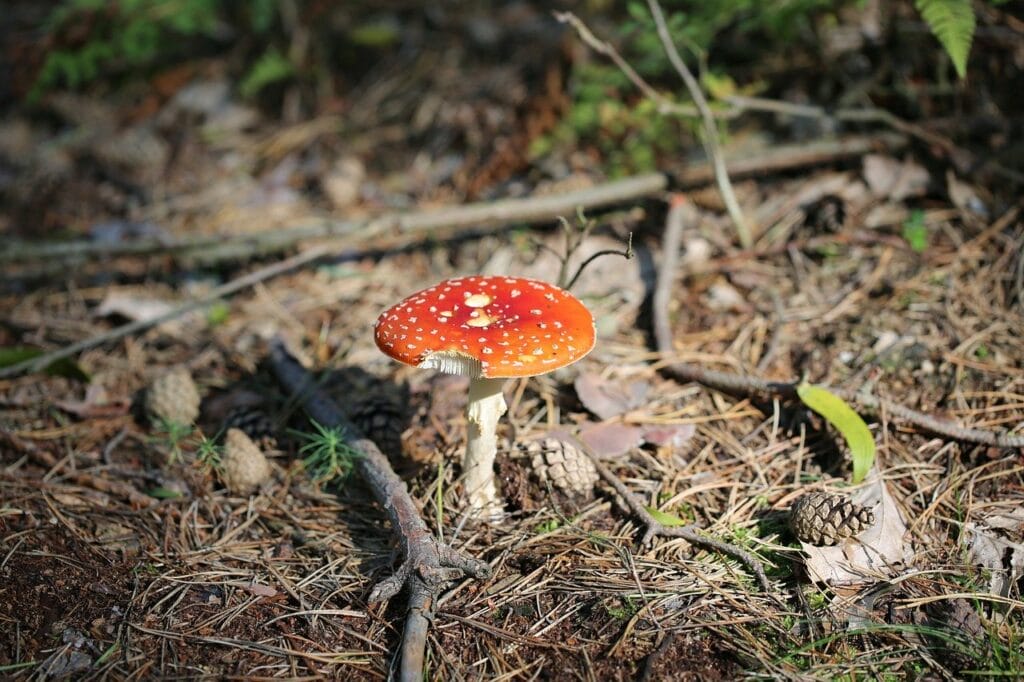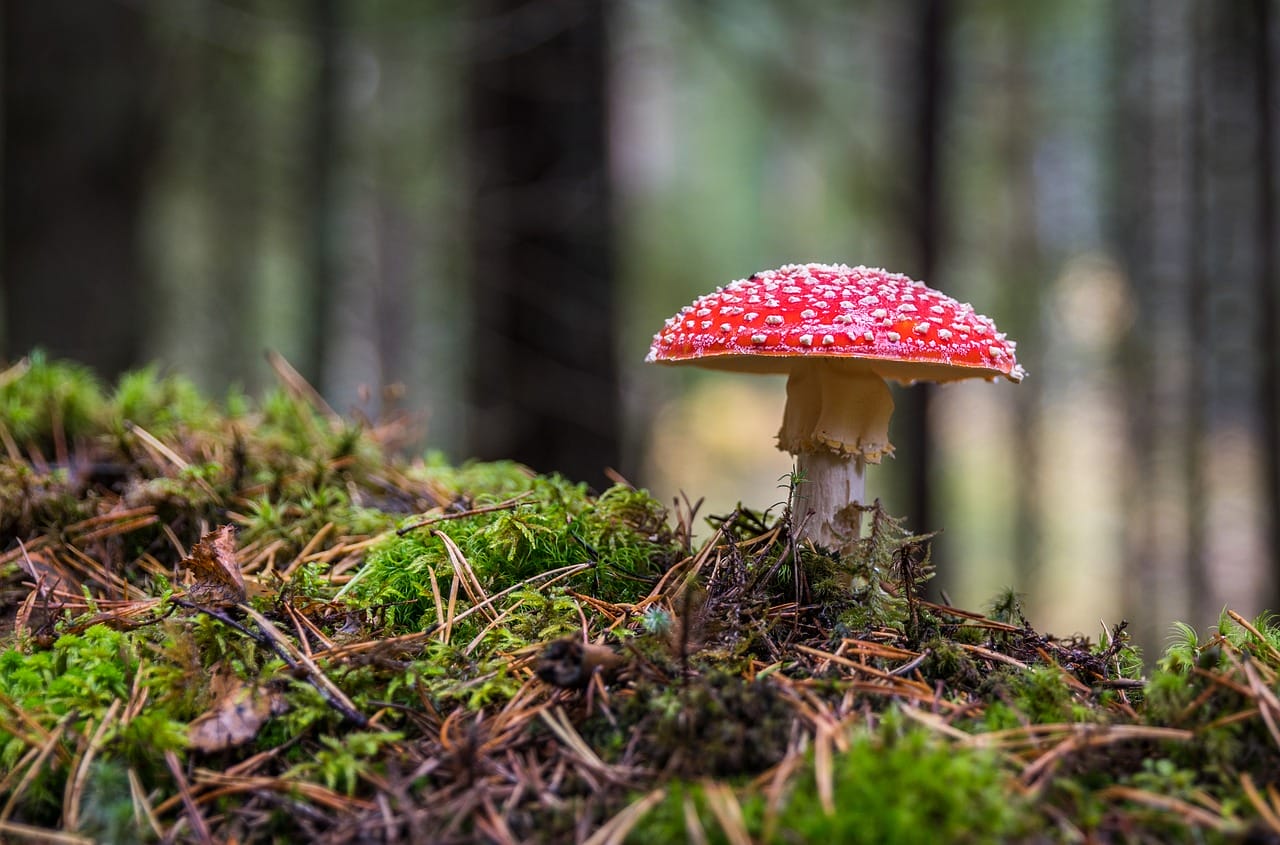Throughout many millennia, humans have identified and intentionally utilized the psychedelic qualities inherent in particular plants and fungi.
Among these, fungi, specifically magic mushrooms, are acknowledged as a prominent natural provider of psychedelic substances.
The psychedelic compound psilocybin, obtained from mushrooms, occupies a noteworthy position in history due to its use in religious ceremonies and therapeutic practices.
A number of researchers are dedicating their resources to explore the potential health benefits of online shrooms. Current studies have shed light on the effects of psilocybin mushrooms. These findings inspire hope in many people and highlight the need to discuss the significance of integrating them into Canada’s health care system.
Major Takeaways:
- Magic mushrooms, which are rich in the psychoactive substance psilocybin, exhibit numerous potential benefits for tackling mental health issues in Canada.
- Psilocybin is safer and carries a significantly lower risk of addiction and toxicity compared to opioids.
- Psilocybin demonstrates long-term effectiveness in combating depression, with effects that can endure for up to a year.

An Insight into Psilocybin
Psilocybin is an indole-alkylamine (tryptamine) derived from magic mushrooms and bears structural resemblance to lysergic acid diethylamide (LSD). It induces hallucinogenic and euphoric experiences, presumably due to its interaction with serotonin (5-HT) receptors in the central nervous system.
In light of its interaction with serotonin receptors, high-quality magic mushrooms show a unique potential to aid in the treatment of mental health conditions.
The Mental Health and Opioid Crisis in Canada
Common Mental Health Disorders in Canada & Resistance to Treatment
| 2012 | 2022 | |
| Major Depressive Episodes | 4.7% | 7.6% |
| Generalized anxiety disorder | 2.6% | 5.2% |
| Social phobia | 3.0% | 7.1% |
| Alcohol use disorder | 3.2% | 2.2% |
Over one-third (36.6%) of people suffering from mood, anxiety, or substance use disorders disclosed that their healthcare and mental health needs are either unmet or insufficiently met.
A scholarly article in the Canadian Journal of Psychiatry offered a deep dive into the attitudes towards treatment of patients diagnosed with depression. The study critically analyzed 1282 patient records from 135 clinicians. Within these records, 263 patients were found to be battling treatment-resistant depression (TRD), corresponding to a prevalence rate of 21.7% across Canada.
The Opioid Crisis
An estimated 8 million Canadians, which is one in five individuals, endure chronic pain. Uncontrolled pain can negatively affect multiple areas of a person’s life.
Healthcare providers sometimes recommend opioid medications as a strategy for pain control. While opioids may provide benefits like pain relief and improved functionality, they also come with potential hazards.
Between January 2016 and March 2022, at least 30,843 deaths related to opioid toxicity were recorded in Canada. The most significant number of these tragic events occurred in the early part of 2021, with a staggering 5,368 cases reported. It’s significant to note that the vast majority, over 88%, of these incidents took place in the provinces of British Columbia, Ontario, and Alberta.
Regarding Major Depressive Episodes
In a study featured in the Journal of Psychopharmacology, 27 individuals with a long-standing history of depression were enlisted. The majority of these individuals had been grappling with depressive symptoms for about two years prior to the study. 88% of these individuals had received treatment with traditional antidepressants in the past, and 58% were currently using such medications during their depressive episodes.
The study noted significant reductions in depression following psilocybin treatment for both groups. It was also observed that the severity of depression remained reliably low at one, three, six, and 12 months post-treatment.
Concerning General Anxiety and Social Phobia
A case study that was published in the Croatian Medical Journal in October 2021 examined HTML:
The story centers around a A solitary 16-year-old boy, grappling with severe anxiety, social isolation, and deteriorating academic performance, approached a mental health clinic for help. His challenges were exacerbated by a learning disability and a lack of enthusiasm for schoolwork, which made group therapy overwhelming and ineffective for him.
Significant positive changes were observed after he underwent three psilocybin sessions over an 18-month period. His anxiety levels diminished, and he was able to communicate better with his peers and teachers. He became more open in expressing his feelings, actively engaged in group therapy, and experienced improved interpersonal relationships.
For Alcohol Use Disorder
A recent clinical trial reported in a study published in JAMA Psychiatry on August 24, revealed the potential of using psilocybin in conjunction with psychotherapy to treat alcohol use disorder. The researchers tracked the progress of 93 patients with this disorder over a period of 32 weeks.
Of the patients who underwent psilocybin-assisted therapy (48 in total), there was a notable 83% reduction in alcohol consumption within eight months following their first dose. This compared to a 51% reduction in the placebo group. Almost half of the participants who received psilocybin ceased drinking entirely.
Opioid Crisis
Elena Argento, a postdoctoral fellow at the University of British Columbia and BC Centre on Substance Use, is investigating the medicinal properties of psychedelics.
Argento explains that psilocybin can help reduce addiction risks in two ways: by affecting neurobiology and psychology. She highlights the transformative experiences psychedelics can provoke, characterized by profound feelings of awe and self-transcendence. These experiences often assist individuals in discovering new meanings and purposes in life, which can potentially lead to behavioral changes, especially in relation to addiction.
In a recent longitudinal study conducted by Argento and the BC Centre on Substance Use, there was a significant decrease in the likelihood of ongoing daily illicit opioid use among individuals who had recently used psychedelics or had done so within the past six months.
In her 2018 study, Argento also proposed that psychedelic use could serve as a protective factor against the link between prescription opioid use and suicide risk.
Another separate study found links between psilocybin use and a reduced risk of opioid use disorder. This research suggested a 40% decreased risk of opioid misuse and a 27% lower risk associated with opioid dependence over the past year as a result of psychedelic use.
Health Canada and Other Regulatory Authorities Need to Consider Psilocybin as Part of Canada’s Therapeutic Approach
While the potential positive influence of Psilocybin on the mental health of Canadians is recognised, its procurement remains challenging. Health Canada allows healthcare professionals to prescribe this treatment under the Special Access Program. However, the stringent rules of the program create substantial barriers for many professionals and patients.
The use of psilocybin-containing mushrooms in therapy could revolutionise mental health care in Canada, providing potentially transformative benefits. Psilocybin therapy, an alternative to traditional yet often less effective treatments such as pharmaceuticals or opioid replacement therapy, could have profound and lasting impacts.
Evidence indicates that psilocybin therapy can provide enduring benefits, potentially saving patients from spending significantly on ineffective treatments. Moreover, research suggests that psilocybin is relatively safe, with low toxicity, a limited risk of misuse, and rare instances of overdose.
Where Can Psilocybin be Bought Online?
For Canadians who find it difficult to access psilocybin therapy, they can choose to buy magic mushrooms online to improve their present conditions. They can explore diverse magic mushroom products, from high-dose shrooms to microdose magic mushrooms.
High-dose shrooms include psychedelic mushrooms available in various forms, such as dried magic mushrooms, edibles, or beverages, which are consumed for their hallucinogenic and therapeutic effects.
Microdosing magic mushrooms includes products with minimal amounts of magic mushrooms. These products come in capsules, shroom edibles, or shroom tea. Buying shrooms online provides an alternative way to subtly experience the benefits of these mushrooms. Shroom Delivery Canada offers only premium magic mushrooms online, ensuring maximum quality.
Is Psilocybin a Good Fit for Canadian Healthcare?
Psilocybin is a substance often misunderstood due to its recreational use. It’s important to note that psilocybin has a safer profile compared to opioids and other drugs typically prescribed in healthcare settings.
There is a growing body of evidence showing its potential benefits, similar to those of marijuana, in treating various mental health conditions. dimensions of reality.
From a holistic wellness viewpoint, magic mushrooms have traditionally been utilized to bolster mental health therapies and foster personal development.
What potential risks and side effects could magic mushrooms pose?
Magic mushrooms can trigger a range of effects, both beneficial and harmful. These may encompass hallucinations, distorted perception, and psychological shifts. On the negative side, they can lead to nausea, dizziness, and in infrequent instances, psychological turmoil. It’s crucial to treat the usage of magic mushrooms with discretion and respect, acknowledging the possible risks associated. Always consult a healthcare professional before initiating any new routine involving magic mushrooms.
Is procuring magic mushrooms online safe?
Purchasing magic mushrooms online can be safe, given that you select a reliable source. It’s vital to perform in-depth research on the product, its brand, and the online dispensary before committing to a purchase. Customer evaluations and ratings can serve as helpful markers of product quality and service reliability. Always opt for dispensaries that prioritize customer safety and satisfaction and provide secure payment methods.
Is it possible to cultivate my own magic mushrooms?
Yes, at-home cultivation of magic mushrooms is feasible and can be a rewarding endeavor. However, it necessitates specific environmental conditions and a comprehensive understanding of the growing process. Numerous kits and guides are available online to aid you in your mushroom cultivation journey. But, bear in mind that the legality of raising magic mushrooms differs by location, so ensure you are in compliance with your local laws and ordinances.
experiences. In the realm of wellness, some people opt for a more measured approach, consuming small quantities of mushrooms to harness their benefits without inducing hallucinations.Engaging Articles You Might Enjoy:





